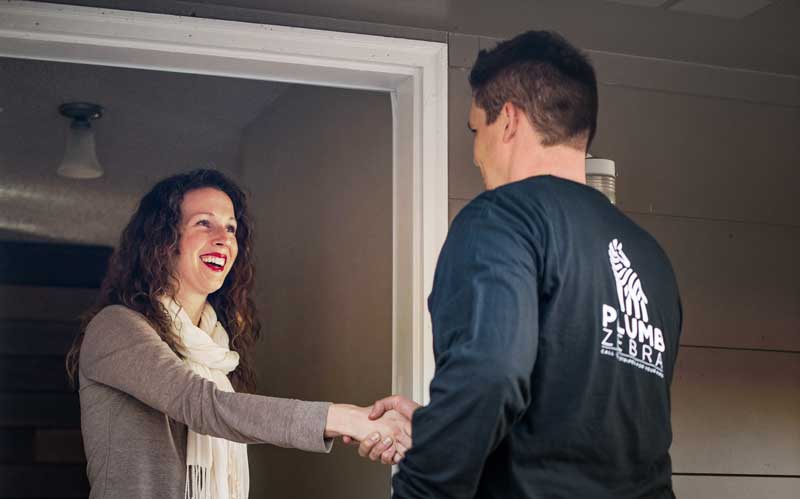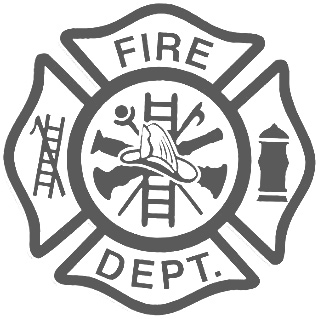Water Softener Installation

Plumb Zebra uses one of the best water softeners available, the Nugen Fusion XT. Among many of its unique features is its full port head. Most water softeners (national brands included), inside the unit, reduce down to a half inch opening reducing the volume of water that you have available at your fixtures. The Fusion XT has a one-inch full port head which means that it is designed to maintain its full one-inch diameter throughout the water softener as to not reduce the volume of water that you have available. Another unique feature of the Fusion XT water softener is its limited lifetime warranty! Backed by a 5-year complete labor and parts warranty from Plumb Zebra!
What a Water Softener Installation Includes
One of our Spokane Valley technicians will remove your old water softener and haul away. We will install your new Fusion XT water softener with a whole house sediment filter to keep sediments from entering the water softener and other fixtures in your home.
Schedule Water Softener Installation Service Free Quote Call or Text 509-317-9009FAQ
As local plumbing experts, we've fixed many problems and gotten asked many questions. But some come up more often, and we hope to answer them here.
You may not think so, but choosing a water heater is a big decision. The average lifespan of a water heater is between 10 and 15 years and possibly longer with routine maintenance. So, it’s a decision you’ll have to live with for many years.
Several criteria help you decide which system is right for you.
Firstly, consider the fuel available in your area, such as natural gas, electricity, or propane. Next, consider your household size and usage habits. If you have a large household, you’ll need a system that can serve everyone without running out of hot water too quickly.
Another thing to think about is energy efficiency. The cost of energy is constantly in flux, so choosing a system that conserves as much as possible while still meeting your needs is a good goal.
Finally, you must decide on the type of water heater you want. This decision may be easier for some people because of fuel limitations, but here are a few options:
Storage tank heaters
These are the most common type of water heaters and store hot water in a tank until it’s needed. They come in gas, electric, and propane models. Gas models are typically more energy-efficient than electric models and can provide hot water even during power outages. On the other hand, electric models are easier to install and maintain.
Tankless water heaters
Tankless water heaters are gaining popularity in the United States because they offer many benefits over tank-style systems. Tankless water heaters provide hot water on demand for as long as you need it because they heat water as it comes into the system instead of storing it in a tank, which means you never run out. Tankless systems are also more energy efficient, which offsets their higher upfront costs.
Heat pump water heaters
Heat pump water heaters are the least common, accounting for only 3% of residential water heaters sold in the United States as of 2021. However, some experts expect this number to increase dramatically as homeowners seek more energy-efficient systems.
Heat pump water heaters use electricity to move heat from the air or ground to heat water, making them more energy-efficient than electric storage tank models. Like tankless water heaters, they’re more expensive to purchase and install, but many people think they’re worth it based on the money they save on energy bills.
It’s best to consult with a professional plumber and discuss your budget and family needs to get the best system for your home.
When people experience clogged drains, most go to the store and purchase a drain cleaning product. These products are advertised as safe and effective, but if you search online, you’ll find plumbers and homeowners who think otherwise. Here’s the lowdown on chemical drain cleaners.
How Do They Work?
Most drain cleaning products contain various corrosive chemicals that react with the materials clogging a pipe or drain and are designed to dissolve the clog. Generally, these products use a weak acid and/or a base to break down material blocking the pipe. The chemicals in these products are highly caustic and can corrode metal, plastic, and other materials, so it is essential to read the instructions carefully before using them.
Are They Safe?
In a word, no.
According to Mount Sinai, “Drain cleaners contain very dangerous chemicals that can be harmful to your health if you swallow them, breathe them in, or if they come into contact with your skin and eyes.”
A Google search will show you how many injuries and deaths occur from misusing these products, and they have other issues too.
Some types of drain cleaners can damage pipes and plumbing fixtures over time, particularly if they are used frequently or in large quantities.
If the drain cleaner does not remove the clog, it can remain in the pipe, causing further damage or creating a more difficult blockage.
Moreover, certain types of drain cleaners, such as those containing sulfuric acid or hydrochloric acid, can react with other substances in the drain and create dangerous gasses that can be harmful if inhaled, which is where many of the injuries occur.
In some cases, chemical drain cleaners can even cause explosions if they come into contact with certain materials, such as aluminum foil or other metals.
The bottom line is that while these products can remove a clog, they’re not worth the risk, and it’s always safer for you, your family, and your plumbing to call a professional when you need clog removal.
Besides clogged drains and dripping faucets, a toilet that runs constantly is one of the most common plumbing problems. But what causes it?
The most common cause is a leak in the flapper valve. This rubber seal at the bottom of the tank controls the water flow into the bowl. If it’s not sealing properly, water leaks into the bowl, causing the toilet to run constantly.
Another possible cause is a faulty fill valve. This mechanism controls how much water enters the tank after each flush. If it’s not working correctly, water will continue to enter the tank and cause the toilet to run.
Finally, if the refill tube is too long and not correctly positioned in the overflow tube, it will constantly pump water into the bowl.
Most of these problems are easy to fix with a trip to the hardware store and a little know-how. But if you get stuck or feel you’re in over your head, call a plumber for help.
If you have a storage tank water heater, you may notice that your showers are getting shorter because the hot water doesn’t last as long, but what’s the problem here?
The Tank May Be Too Small
If your family has grown or you’ve added onto the house, your water tank may be too small to accommodate the increased demand. You can solve this by upgrading to a larger model.
Heating Element Failure
Your water heater works day and night to ensure you always have hot water when needed. All that work takes its toll on the components, including the heating element. Most water heaters have two heating elements: one at the bottom of the tank and one at the top. If the one at the bottom goes bad, the cold water rises to the top, and you run out of hot water more quickly.
The Thermostat is Too Low
If the thermostat is set lower than usual, it will take longer for the heater to reach the desired temperature, resulting in less hot water overall. Check the thermostat and make sure it’s set correctly.
Sediment Buildup
Sediment buildup can also lead to shorter periods of hot water. Over time, sediment accumulates in the bottom of the tank and reduces the tank’s capacity. This is especially common in areas with hard water. Flushing out the tank periodically can prevent this problem from worsening and increase your hot water.
Your Water Heater is Failing
The life expectancy of a water heater is between 10 and 15 years. All water heaters, despite your maintenance habits, have an expiration date. Most experts recommend replacing your water heater if it’s over ten years old.
From a plumbing perspective, there are several key differences between drain and sewer cleaning.
Drain cleaning typically refers to removing clogs or blockages in smaller, individual drain lines connected to sinks, toilets, showers, and other fixtures. These pipes are typically located inside the home and are designed to carry waste water away from the fixtures and into a larger sewer or septic system. Drain cleaning methods may include:
- Plungers
- Drain cleaners
- Drain snakes
Sewer cleaning, on the other hand, refers to removing blockages or debris from larger sewer lines located outside of the home and carrying waste water away from multiple fixtures. Sewer lines are typically buried underground and can be several inches or even feet in diameter. Sewer cleaning methods may include:
- Hydro jetting
- Sewer snakes
- Camera inspections
Hero Discounts
$50OFF #
Water Softener Installation
Cannot be combined with any other offers or discounts. Coupon must be presented at time of payment. Not valid for trip charge or diagnostic fee. Valid on standard pricing only. Redeemable for one-time use per home.
Get This Deal
Softening the Waters
The Advent of Water Softeners
The invention of the water softener marked a transformative moment in household plumbing. Initially developed in the early 20th century, these devices combat the challenges of hard water, characterized by high concentrations of minerals like calcium and magnesium. Hard water often leads to scale build-up in pipes and appliances, reduced soap lathering, and even skin and hair dryness. Water softeners, by exchanging these hard minerals with sodium or potassium ions, revolutionized domestic water use, prolonging appliance lifespans and enhancing personal care routines. For those in search of the ideal water softening solution, Plumb Zebra offers an extensive range of options. Their curated selection ensures every household can find the perfect fit to turn hard water woes into a thing of the past.










